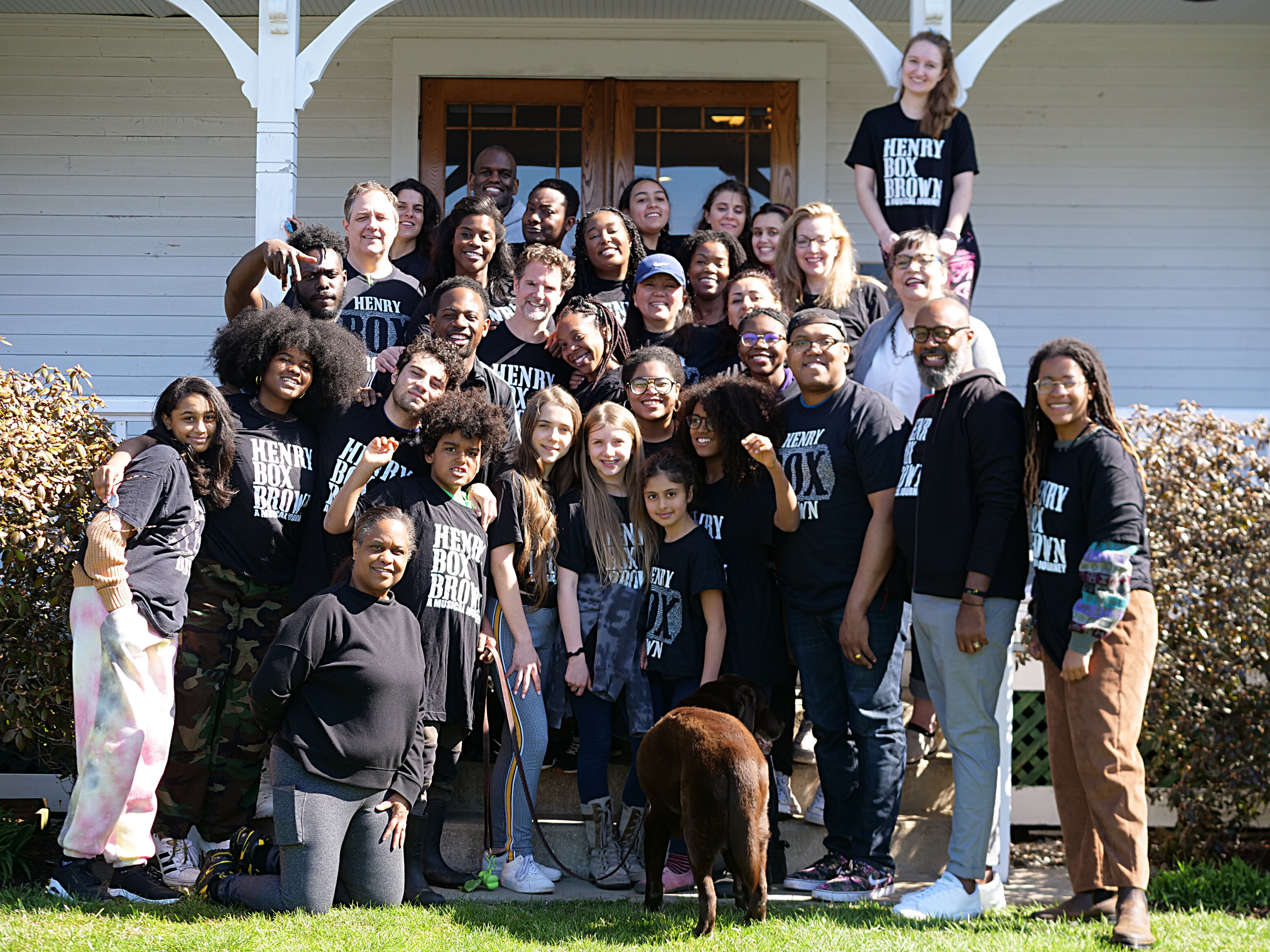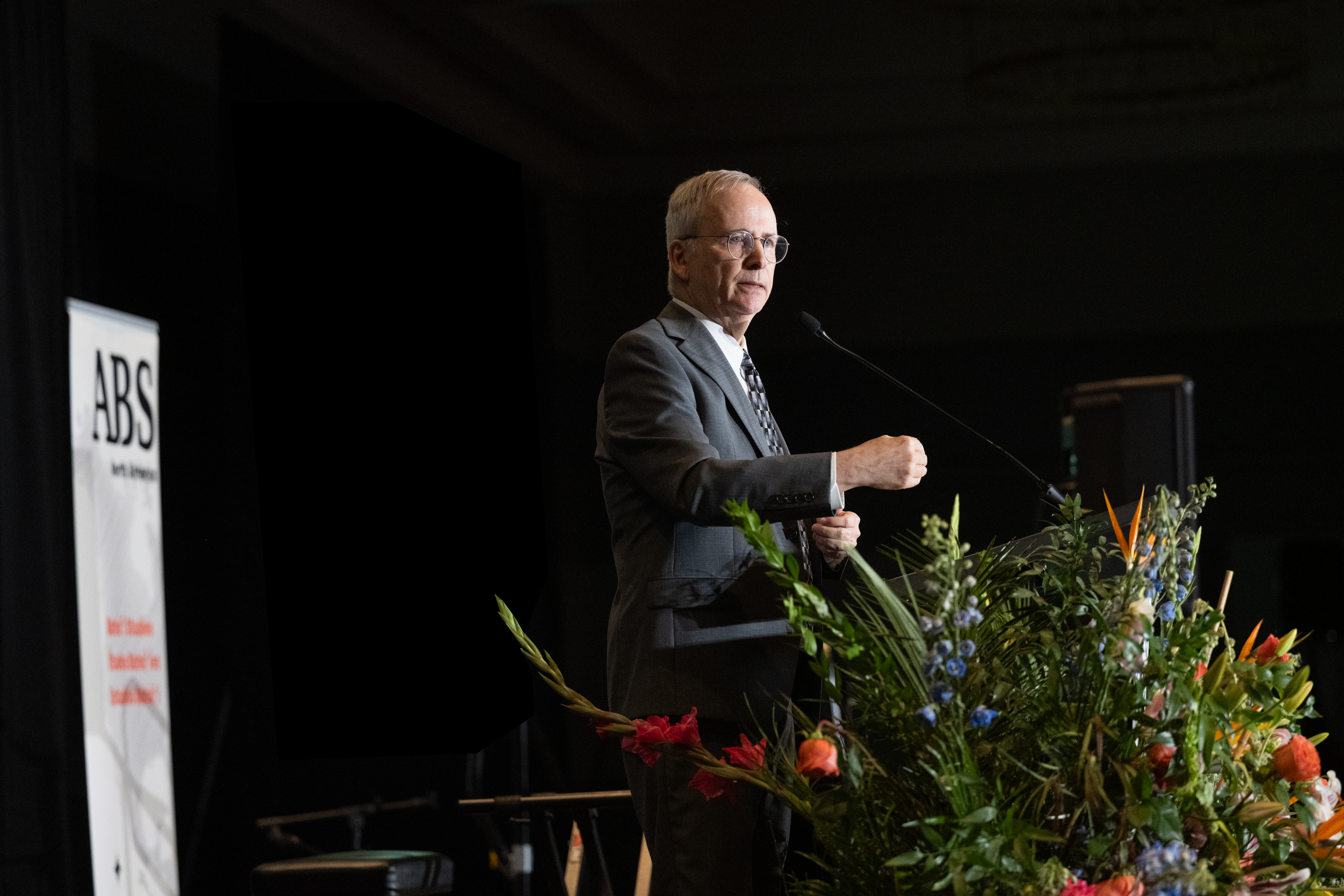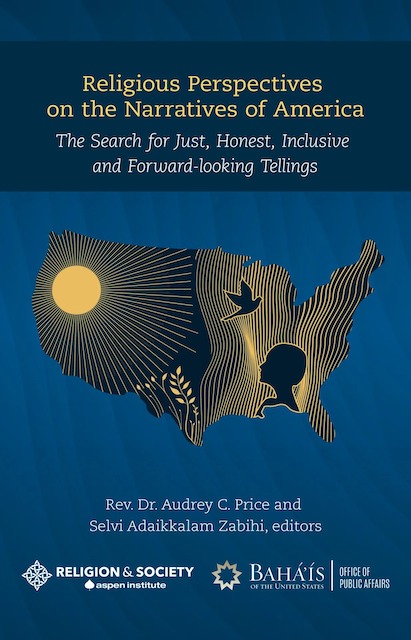
Baha’is join world-embracing event in Toronto
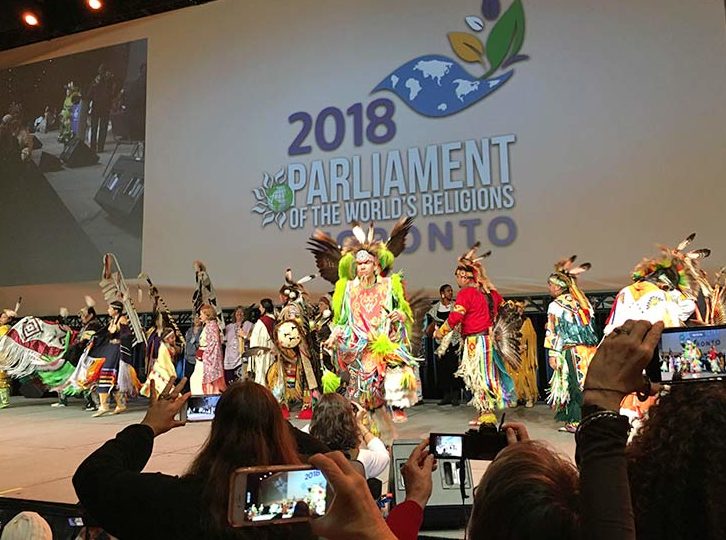
Pursuing global understanding, reconciliation and change was much on the agenda last month at the 2018 Parliament of the World’s Religions in Toronto, Ontario.
Representatives of more than 142 religious organizations convened to host presentations, booths and exhibit space that welcomed more than 8,300 visitors.
Through talks, presentations and films, music direction, service to the planning council, and collaboration on programming for children, Baha’is made significant contributions to the event.
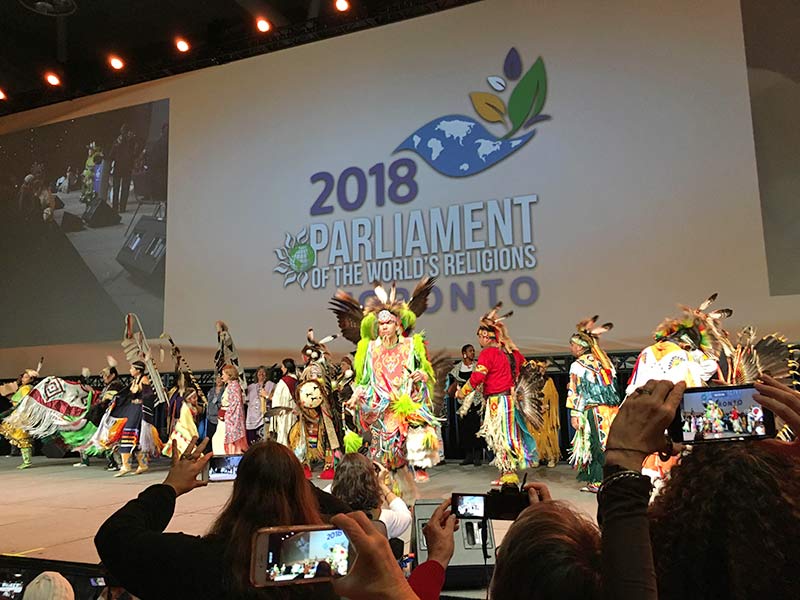
Festivities began on November 1 with the ceremonial lighting of a sacred fire that burned all seven days outside the Metro Toronto Convention Centre. A few hours later further opening ceremonies included indigenous people dancing in colorful regalia.
The event’s focus on indigenous inclusion and reconciliation was “very powerful for me,” says Joyce Olinga of St. Louis. “It was significant that there were women dancers and a women’s drumming circle, too.” she says.
Olinga says that the Parliament brought together “people who were open-hearted, wanting to learn, and curious. It was like heaven on earth where all people’s beliefs are honored and respected.”
Olinga took more than 1,000 photos of the event and has already shared many in a presentation for her monthly interfaith group in St. Louis.
Toronto’s Parliament was the second for Ellen Price, a Baha’i from Wilmette, Illinois. “It was a place where everyone was just coming together to share and express love,” Price says.
“What I thought was so cool was that there was so much creativity in people’s expressing their spirituality,” she says. “Walking through the hallways and on the many escalators in the conference center you’d see art at the booths, and there were people singing, and dancing and even wearing big puppet heads. It was such a beautiful experience.”

Price collaborated with Edwina Cowell, of Glenview, Illinois, founder of the interfaith organization, “Spiritual Playdate” to create part of the Parliament’s first-ever children’s programming. Cowell recruited 17 religious groups to each host an activity, or “patch” during what became the five-day family festival.
Cowell says she was inspired a year earlier by an activity she saw at the Baha’i House of Worship — a tent that simulated a mine of “gems of inestimable value” that taught children about their inherent virtues.
“We strove to make it a little bit like a children’s museum where it was an exploration,” says Cowell of the interactive patches. “We wanted everything to be entertaining and engaging for both adults and kids.”
“We had Muslims and Zoroastrians and Unitarians, and each of them demonstrating something from their faith,” Cowell says. “They weren’t trying to get you to sign up for something, or enroll in something, or sell a book.” Instead, they were sharing what Cowell says we all really need, “some religious literacy without proselytizing.”
The learning patches were visited by families from around the world who attended the Parliament. There were also field trips from local Toronto schools, and on one day more than 1,200 middle and high-schoolers visited the interfaith family festival.
Much of the Parliament programming spoke to issues of indigenous people, women’s dignity, climate action, and countering war, hate and violence. According to Molly Horan, director of communications for the Parliament of the World’s Religions, there were 1,352 programs engaging 2,055 presenters, 56.3 percent of whom were female.
The Wilmette Institute, an online global Baha’i learning center, hosted a booth and streamed live interviews. One was with Sovaida Ma’ani Ewing, an attorney and author from Washington, D.C., who made a presentation with a Catholic professor she met at the last Parliament in 2015.
“So many people are feeling so despondent these days, given everything that is going on in the world, and really don’t believe that peace is possible at all,” Ma’ani Ewing says. “And the Baha’is have a completely different perspective.” Her goal was to share the Baha’i view on peace and engender hope.
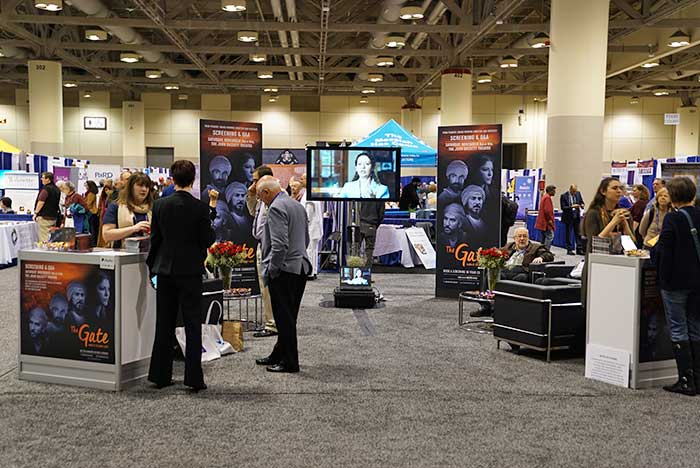
“One thing that surprised me about the Parliament,” says Trish Forde of Northfield, Illinois, “was the fact that there are so many different religions in the world. So many! I just didn’t realize.”
Forde says she was pleased that people were so open to discussing the Baha’i Faith. “They were often surprised to learn that we believe some of the same things,” she says. “We were all learning, without pushback, without arguments and without trying to prove that they are right and we were wrong. None of that occurred.”
Another highlight for Forde was the screening of the film “The Gate,” a documentary about the origins of the Baha’i Faith. “About a thousand people showed up. That was really something!” Forde says. “I don’t think any other film had that kind of attendance and the next day people were literally talking about it everywhere.”
The Parliament’s mission — people of all religions working harmoniously “for a more just, peaceful and sustainable world” — is in close alignment with Baha’i principles, and the affinity between the Parliament and the Baha’i Faith goes back to the organization’s beginnings. The first mention of the Baha’i Faith in the western hemisphere was in 1893 at the first Parliament, part of Chicago’s Columbian Exposition. Baha’is have been involved in the planning of several of the Parliament gatherings since it was revived in 1993.


